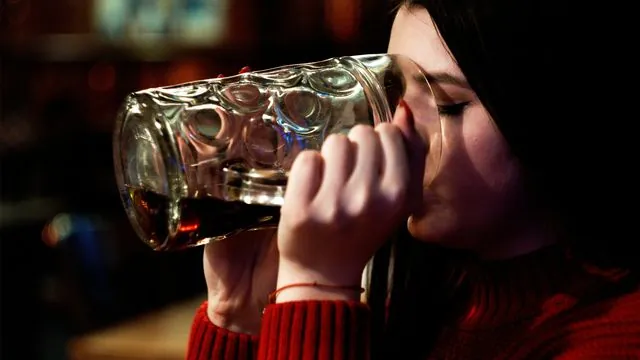
Asthma Drug's Surprising Impact on Alcoholism: New Study Reveals Unexpected Results
2025-06-03
Author: Ming
A groundbreaking UCLA clinical trial has revealed that ibudilast, a medication primarily used for asthma and post-stroke dizziness in Japan, may have unexpected impacts on alcoholism treatment. Despite its initial promise, the drug fell short of expectations in combating alcohol use disorder.
Positive Effects for Some Participants
Published in JAMA Network Open, the study found that while ibudilast didn't outperform a placebo overall, it did show effectiveness in a specific subgroup of participants. "While ibudilast was not superior to the placebo, we saw variations in how individuals responded," stated lead author, Dr. Lara Ray, a psychology professor at UCLA. Notably, women in the study exhibited better results with ibudilast, while those with higher depression levels fared worse.
A Deep Dive into the Research
The UCLA Addictions Lab, which devoted years to exploring ibudilast, found mixed results that highlight the complex interplay between inflammation, immune responses, and alcohol use disorder. Similar to apremilast, another drug in the testing phase, ibudilast targets the body's immune mechanisms.
Dr. Ray emphasized, "We believe there’s a strong immune link to psychiatric conditions, particularly depression and alcohol use disorders. Since women generally have higher inflammation levels, the drug's effectiveness for them suggests we’re onto something significant. Just like immune treatments have changed cancer care, we aim to innovate treatments for alcohol abuse."
Trial Insights and Observations
In this pivotal trial involving 102 adults seeking help for moderate to severe alcohol use disorder, participants took either ibudilast or a placebo for 12 weeks, followed by a four-week evaluation period. Researchers monitored drinking habits and associated depressive symptoms and inflammation.
The results indicated general reductions in alcohol consumption across both groups. Initially starting with an average of seven drinks per day, participants ended with around three to four drinks daily. However, this reduction was consistent across both groups, complicating the drug's efficacy claim.
Remarkable Differentiation Among Participants
Interestingly, women using ibudilast reported lower consumption levels, prompting calls for further studies to confirm these findings, particularly for females. Conversely, individuals with heightened depressive symptoms demonstrated better outcomes on a placebo, which adds an intriguing layer to the research.
Dr. Ray noted, "Our lab is dedicated to discovering innovative treatments for substance use disorders. It's uplifting that all participants in our study showed improvement. Moving forward, longer follow-up periods may yield clearer distinctions between the medication's direct effects and the supportive treatment environment."
Future Directions and Funding Needs
Currently, ongoing analyses will help pinpoint who benefits most from ibudilast, especially among those dealing with concurrent pain and elevated inflammatory responses. This study, backed by the National Institute on Alcohol Abuse and Alcoholism, underscores the need for continued federal support to pioneer effective treatments for the nearly 30 million adults grappling with alcohol use disorder in the U.S.
"We are grateful that participants trust UCLA and actively engage in their treatment, which itself catalyzes significant behavioral changes," Dr. Ray remarked.



 Brasil (PT)
Brasil (PT)
 Canada (EN)
Canada (EN)
 Chile (ES)
Chile (ES)
 Česko (CS)
Česko (CS)
 대한민국 (KO)
대한민국 (KO)
 España (ES)
España (ES)
 France (FR)
France (FR)
 Hong Kong (EN)
Hong Kong (EN)
 Italia (IT)
Italia (IT)
 日本 (JA)
日本 (JA)
 Magyarország (HU)
Magyarország (HU)
 Norge (NO)
Norge (NO)
 Polska (PL)
Polska (PL)
 Schweiz (DE)
Schweiz (DE)
 Singapore (EN)
Singapore (EN)
 Sverige (SV)
Sverige (SV)
 Suomi (FI)
Suomi (FI)
 Türkiye (TR)
Türkiye (TR)
 الإمارات العربية المتحدة (AR)
الإمارات العربية المتحدة (AR)